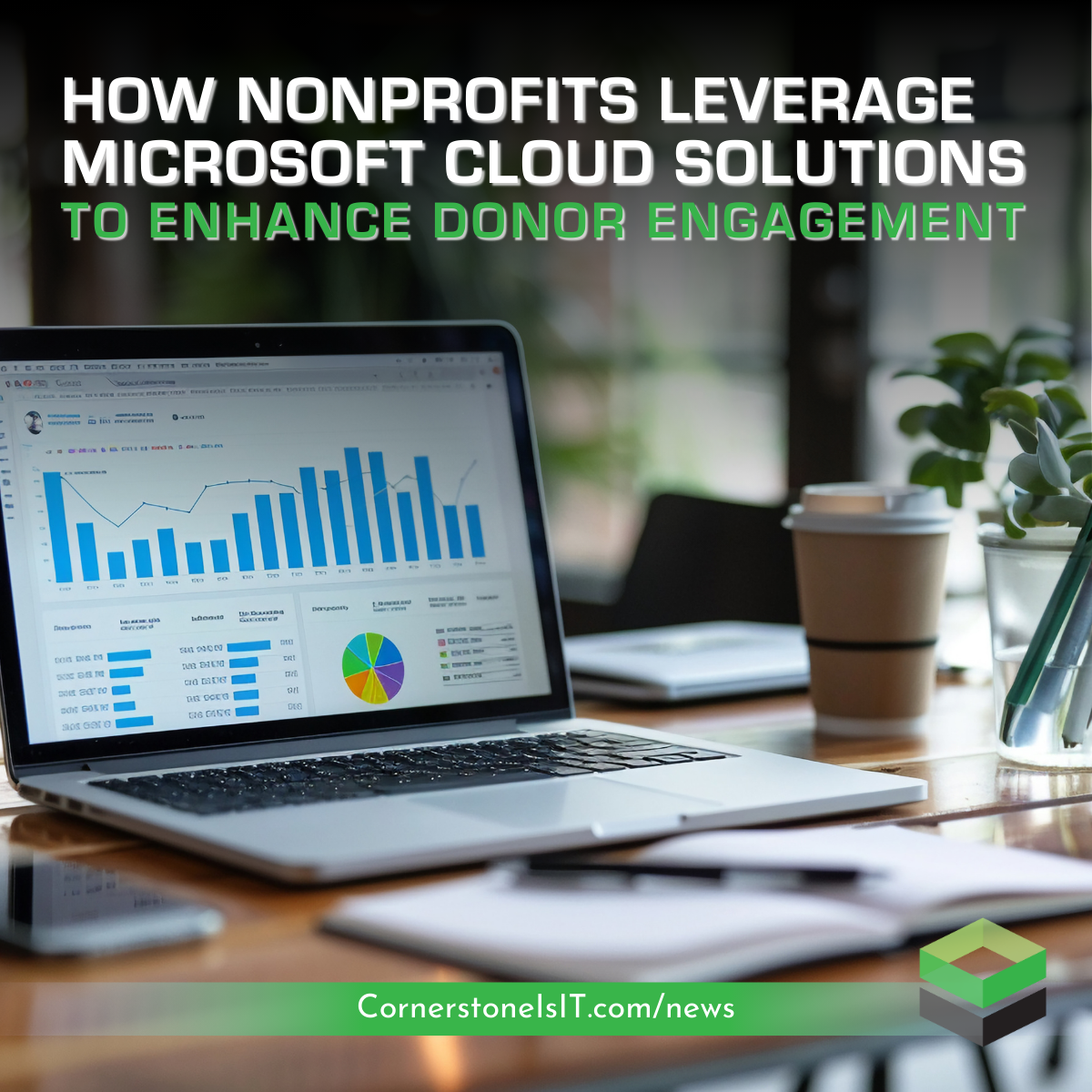
Even nonprofits deal with a competitive environment these days. This means effective donor engagement is more critical than ever. As nonprofits look for ways to build stronger relationships, enhance communication, and optimize fundraising efforts, technology plays a significant role. One of the most powerful tools available is Microsoft cloud solutions, which provide nonprofits with the flexibility, security, and scalability needed to streamline operations and improve donor engagement. By working with a Microsoft cloud solution provider, nonprofits can harness the full potential of cloud technology to foster lasting connections with donors.
Leveraging Microsoft Cloud Solutions
1. Understanding Microsoft Cloud Solutions for Nonprofits
Microsoft offers a suite of cloud solutions that can help you tackle your unique challenges. From Microsoft 365 and Dynamics 365 to Azure and Power BI, these tools provide comprehensive support for a variety of nonprofit needs.
Microsoft’s cloud platform is designed to help you streamline your operations, enhance collaboration, and improve donor engagement. By adopting Microsoft’s cloud solutions, nonprofits can move away from outdated, manual systems to more efficient, automated processes. For many nonprofits, partnering with a Microsoft cloud solution provider is essential for implementing these technologies in a way that’s tailored to their specific needs.
2. Improving Donor Management with Microsoft Dynamics 365
One of the most powerful Microsoft cloud solutions for nonprofits is Dynamics 365, an integrated customer relationship management (CRM) platform. Dynamics 365 provides you with a comprehensive view of your donors, enabling your team to track donations, interactions, and engagement across multiple touchpoints.
With Dynamics 365, you can easily manage donor data, segment your audience, and automate communication workflows. This allows your team to engage donors more effectively with personalized outreach and timely updates, all while reducing administrative burdens. Donor management becomes streamlined, allowing your organization to build stronger, more meaningful relationships.
3. Enhancing Communication through Microsoft Teams and Outlook
Communication is key to maintaining strong relationships with donors, and Microsoft provides powerful tools to enhance this communication. Microsoft Teams and Outlook can support nonprofits in their outreach efforts.
Microsoft Teams enables internal collaboration, allowing your team to stay connected and aligned when working on donor campaigns. Through Teams, staff members can share documents, hold meetings, and even collaborate on donor engagement strategies, ensuring that communication within the organization is smooth and efficient.
Meanwhile, Outlook provides advanced email management tools that allow you to segment your email lists and create personalized communication. Nonprofits can tailor emails based on donor preferences, ensuring that each message feels relevant and valuable. By using Outlook’s features, you can send timely reminders, thank-you notes, or campaign updates, all while strengthening the donor relationship.
4. Using Data and Analytics for Better Donor Insights
Data is one of the most powerful tools available to nonprofits, yet many organizations struggle to make sense of it. Fortunately, Power BI and Azure are Microsoft solutions that can help you gain valuable insights from your donor data.
Power BI is a data analytics tool that allows nonprofits to visualize data, track trends, and generate reports that inform decision-making. By analyzing donor behavior, engagement patterns, and fundraising performance, your team can make data-driven decisions that enhance your outreach and fundraising strategies.
Azure, Microsoft’s cloud computing platform, also provides powerful tools for storing, managing, and analyzing large sets of data. By leveraging Azure, you can ensure that donor data is secure and easily accessible, making it easier to personalize donor experiences and improve engagement.
5. Secure and Scalable Solutions for Growing Nonprofits
As nonprofits grow, their need for secure, scalable technology becomes increasingly important. Microsoft offers both security and scalability, making them ideal for your organization if you’re looking to expand without compromising your donor data’s safety.
Microsoft Azure provides enterprise-level security, ensuring that donor data is protected from threats like data breaches and cyberattacks. With built-in security features, such as data encryption, multi-factor authentication, and compliance with industry standards, you can confidently manage your donor information without worrying about security risks.
Scalability is another significant benefit of Microsoft cloud solutions. As your nonprofit grows, so too does the volume of donor data and interactions. Azure allows organizations to scale their infrastructure seamlessly, ensuring that you can continue to manage donor engagement effectively, even as your operations expand.
6. Leveraging Microsoft Cloud for Fundraising Campaigns
Fundraising is at the heart of most nonprofit operations, and cloud solutions can make these efforts more efficient and impactful. With tools like Dynamics 365 and Microsoft Teams, nonprofits can automate and optimize fundraising campaigns.
For example, Dynamics 365 can automate the process of sending fundraising appeals based on donor history, ensuring that each message feels personalized. You can also use Microsoft Teams to coordinate campaign efforts, track progress, and share updates in real time, ensuring that everyone is on the same page and that fundraising efforts are as effective as possible.
7. Collaboration with a Microsoft Cloud Solution Provider for Tailored Support
While Microsoft’s cloud solutions offer robust features, nonprofits often need a helping hand to fully integrate these tools into their operations. This is where a Microsoft cloud solution provider comes in. A provider like Cornerstone Technologies can offer the expertise needed to implement Microsoft’s solutions in a way that’s tailored your nonprofit’s unique needs.
Working with a Cornerstone ensures that you get personalized support, whether it’s setting up your cloud infrastructure, training staff on new tools, or troubleshooting any issues that arise. Providers can also offer ongoing maintenance and optimization, helping nonprofits get the most out of their Microsoft cloud solutions over time.


Leave Your Comment Here